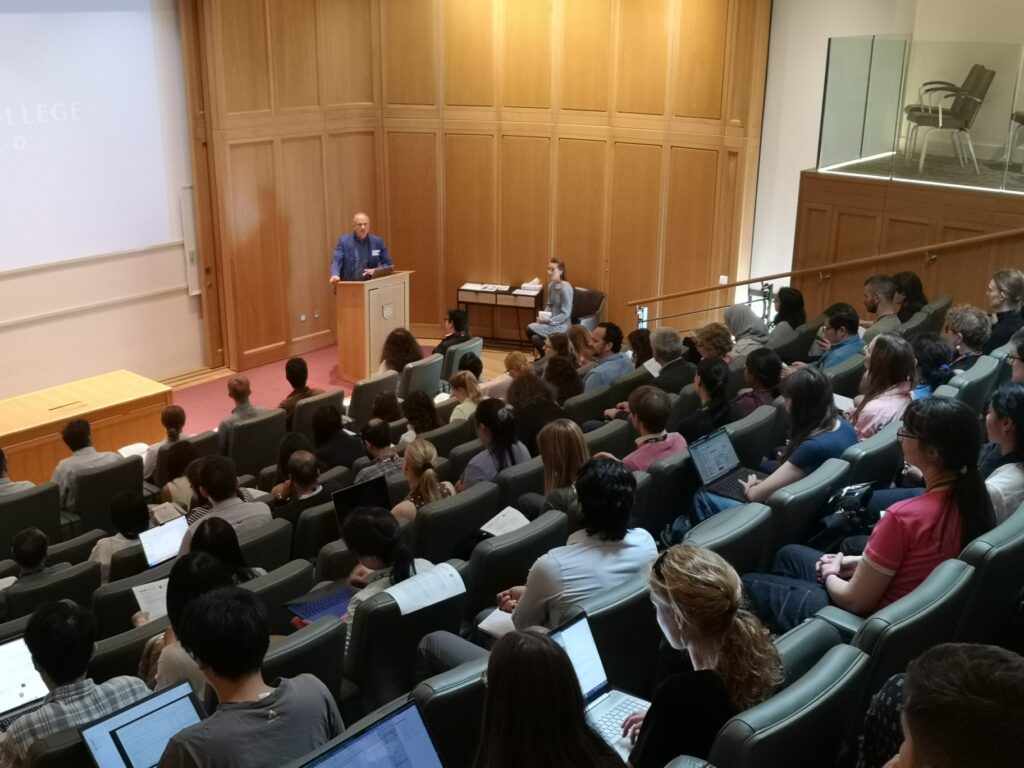The NIHR Oxford BRC’s Gene and Cell Therapy Theme has organised its second workshop to discuss how researchers from a range of disciplines are using new CRISPR gene editing tools or applying CRISPR to their research in innovative ways.

The workshop, held on 4 July at Merton College in Oxford, attracted around 120 early career researchers and DPhil students, who were able to share CRISPR-related technical expertise, practical advice and troubleshooting tips with their peers in other BRC theme and University departments.
It is an opportunity to bring together researchers from the different disciplines who are working on similar problems, so that they can share their knowledge and look for collaborations.
CRISPR, which stands for Clustered Regularly Interspaced Short Palindromic Repeats of genetic information, involves finding a specific piece of DNA in a cell and then altering it. It is regarded as potentially revolutionary for medicine, allowing us to not only treat but also prevent many diseases.
The BRC Theme Lead for Gene and Cell Therapy, Professor Robert MacLaren, who organised the workshop said:
“There has been great enthusiasm for this CRISPR workshop, and that’s no doubt due to the amazing work that’s being done here in Oxford and the incredible talent that we have in this field.
“This is a therapy with huge potential. If you look at the clinical domain, there are several CRISPR gene therapy trials and several products that are close to getting approval. We want to ensure that in Oxford we are at the forefront of early-stage programmes through to clinical trials and hopefully treatments.”
Professor MacLaren says that CRISPR technology can be applied across all Oxford BRC themes, but especially in the fields of neurology, cardiology, haematology and cancer. It’s main advantage is that cells whose DNA ‘defects’ have been corrected will behave as they should, in terms of gene expression, and so be indistinguishable from a normal healthy cell.
“It’s a very effective way of correcting a gene defect; the principle is to change the sequence of the genetic code, which is quite a new thing in gene therapy. What we’ve done up till now is replace the missing gene with another gene from a viral vector.
“CRISPR gives us the opportunity to correct the mutation where it occurred; you can take cells out of the body, genetically modify them correct a defect, transplant them back into the same patient with the gene defect corrected. The great advantage of that is when the gene is expressed, the normal regulation of the gene is natural because it’s part of the genomic DNA –the DNA in the cell.
The workshop was restricted to Oxford researchers, with a particular emphasis on younger ones. The confidential nature of the workshop meant that they could disclose anything, as they would in their research groups with no future implications for intellectual property.